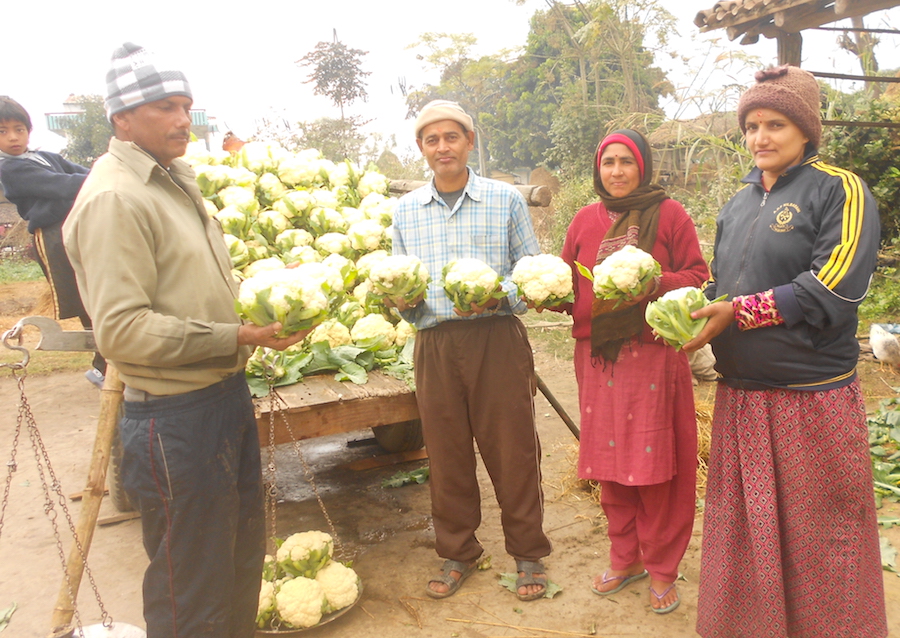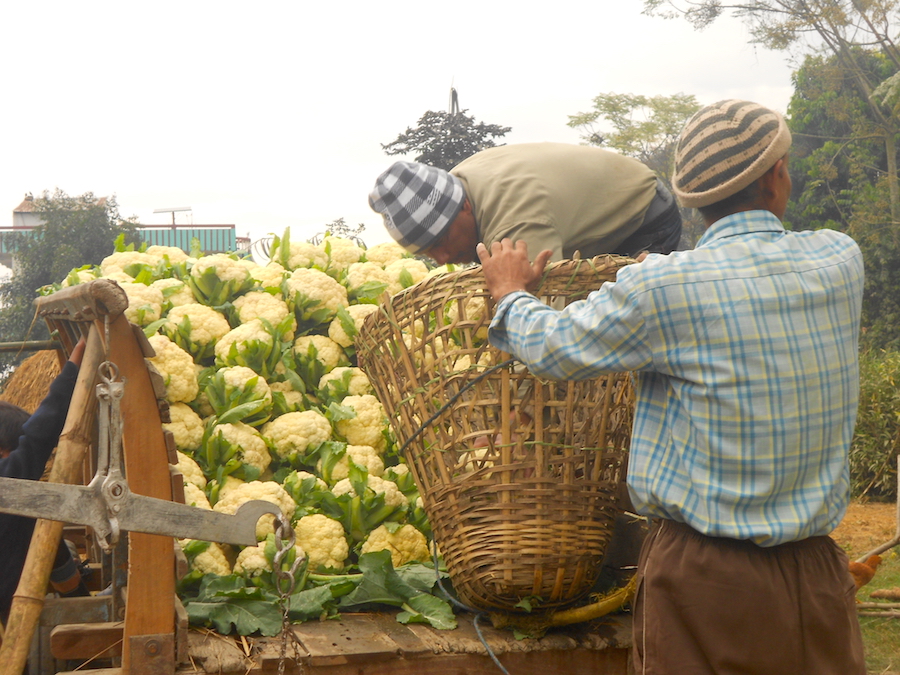 Saligram’s Story
Saligram’s Story
Saligram Neupane has been a subsistence farmer his whole life, growing grains and vegetables in Chitwan, Nepal to feed his family of seven.
Despite more than fifteen years of experience farming according to traditional practices that have been used for generations, Saligram struggled to earn a profit from his farm.
Pest infestations and diseases destroyed his crops several times, leaving his family without enough food or income. Two of his sons had to leave home to seek out work as day laborers in South Korea and Dubai.
In 2013, READ opened a community library and resource center in Saligram’s village of Madi, and launched thePractical Answers program, in partnership with Practical Action. The program helps local farmers by answering their questions on agriculture and rural livelihoods through radio and video shows, focus group discussions, and trainings with experts from the District Agricultural Office.
Saligram has participated in almost all of the agricultural interaction programs at the library. After reading about cauliflower in a book at the library, and participating in a training program on how to grow it, he decided to grow and sell cauliflower to make extra income. Cauliflower is not very common in his area, and as such it’s in high demand. Every day, Saligram visited the library to get information on the weather and temperature, displayed publicly to help farmers.
Saligram’s cauliflower grew healthily at first, but eventually their stems started to turn black with rot. Immediately, he reached out to the social mobilizer at the library, who called an agricultural expert to visit his farm. The expert explained to Saligram that his cauliflower were affected by a disease, and showed him how to diagnose, manage, and control it.
Saligram’s cauliflower are healthy now, and every day after harvest he pushes a cart around his village to sell to his neighbors. He has even hired two helpers. He can also exchange cauliflower with rice and other crops – alleviating the pressure for him to grow as much on his own.
He has been so successful the District Agricultural Office provided him with a small grant of 10,000 Nepali rupees, to buy seedlings to grow climber plants like beans, gourds, and peas.
Because of the profit Saligram made in one year of growing these new crops, he plans to bring his two sons back home. He told them, “You don’t need to go abroad to make money. If you work hard on your farm here, you can grow gold.”
Saligram explained that “Before, I used to think of the library as a place just for reading books, but now I realize the library is a knowledge center for farmers like us — helping to answer our queries, connecting us with experts to help our agriculture businesses flourish.”





